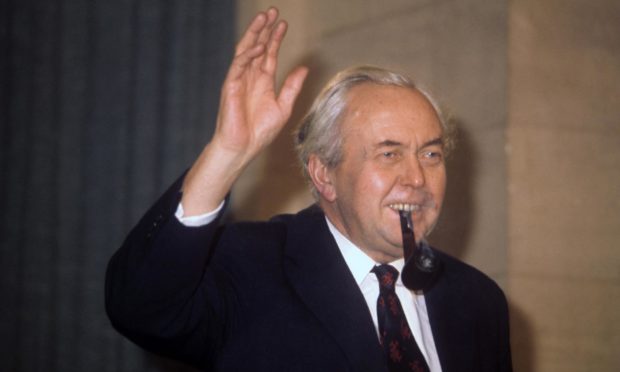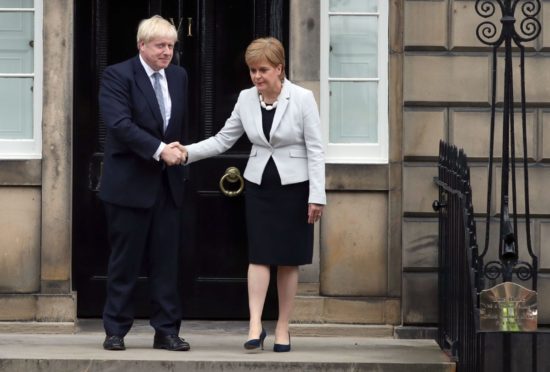Harold Wilson resisted a push for devolution in the seventies – telling officials “Scotland is a bit frightening”, according to unsealed Cabinet papers.
The former Labour prime minister set up a Royal Commission on the constitution after the SNP won their first parliamentary seat in 1967.
But the Huddersfield MP was later uneasy at the prospect of taking devolution proposals to his colleagues – telling the then-Cabinet Secretary John Hunt “we shall have strong and perhaps majority opposition within the Cabinet to it”.
The proposals to which Wilson was referring are those put together by the Number 10 constitution unit, which he established in 1974.
The unit sketched out a model of a Scottish assembly that is broadly like the Scottish Parliament we know today.
In a memo released by the National Archives, the unit summarised: “There would be fully fledged legislative and executive capability, modelled in general fairly closely on the Westminster pattern and possessing most of the customary attributes of a government.
“It would be served by officials who would if possible, but not certainly, remain part of the UK civil service.”
A Scottish House of Lords?
In earlier drafts, the unit mooted the possibility of a second chamber in Scotland.
“A reformed House of Lords at Westminster, with a new composition and perhaps new powers, could prove to be something which might be repeated in Scotland and Wales”, it said.
The unit also spelled out Westminster’s power of veto over any new assembly, it stated: “The UK Government would have theoretically extensive powers of override, but these would be conspicuously separate from the normal processes of administration.”
The memo states that there would be “many layers of consultation between Westminster and the devolved administrations” but, officials warn, the Scottish assembly “could not be made effective by compulsion”.
The document states that while Westminster would have the ability to override, it “would be too heavy for easy or frequent use”.
During the Brexit process the UK Government has come in for criticism for consistently using its override powers to force through exit legislation.
Downing Street meltdown
The unit’s recommendations to Wilson were a culmination of a year’s work by a team of experienced civil servants.
So anxious was the Labour administration over the proposals, when leaks of the plan started to appear in national newspapers it sent Downing Street into a meltdown.
One 70-page bundle of documents released today reveals that a lengthy and costly leak inquiry was launched.
The inquiry centred on reports in The Times that several Cabinet ministers wanted to kick devolution reforms into the long grass.
Retired civil servant Philip Allen was brought in on a stipend of £200 – roughly £1,700 today – to investigate.
Allen’s work yielded little, but the reforms proposed eventually took shape in the form of the unsuccessful 1978 Scotland Act.


